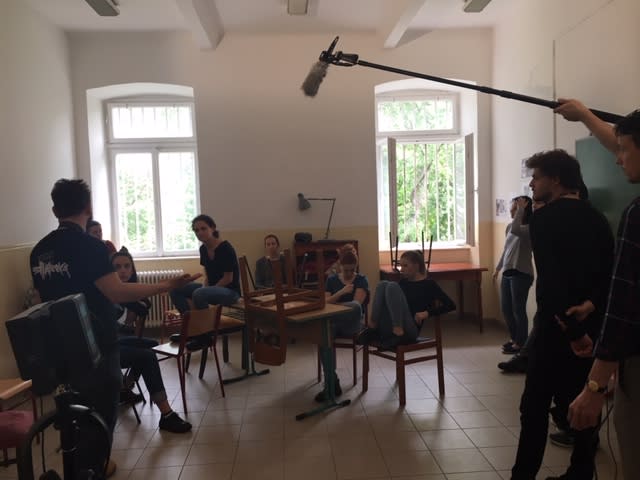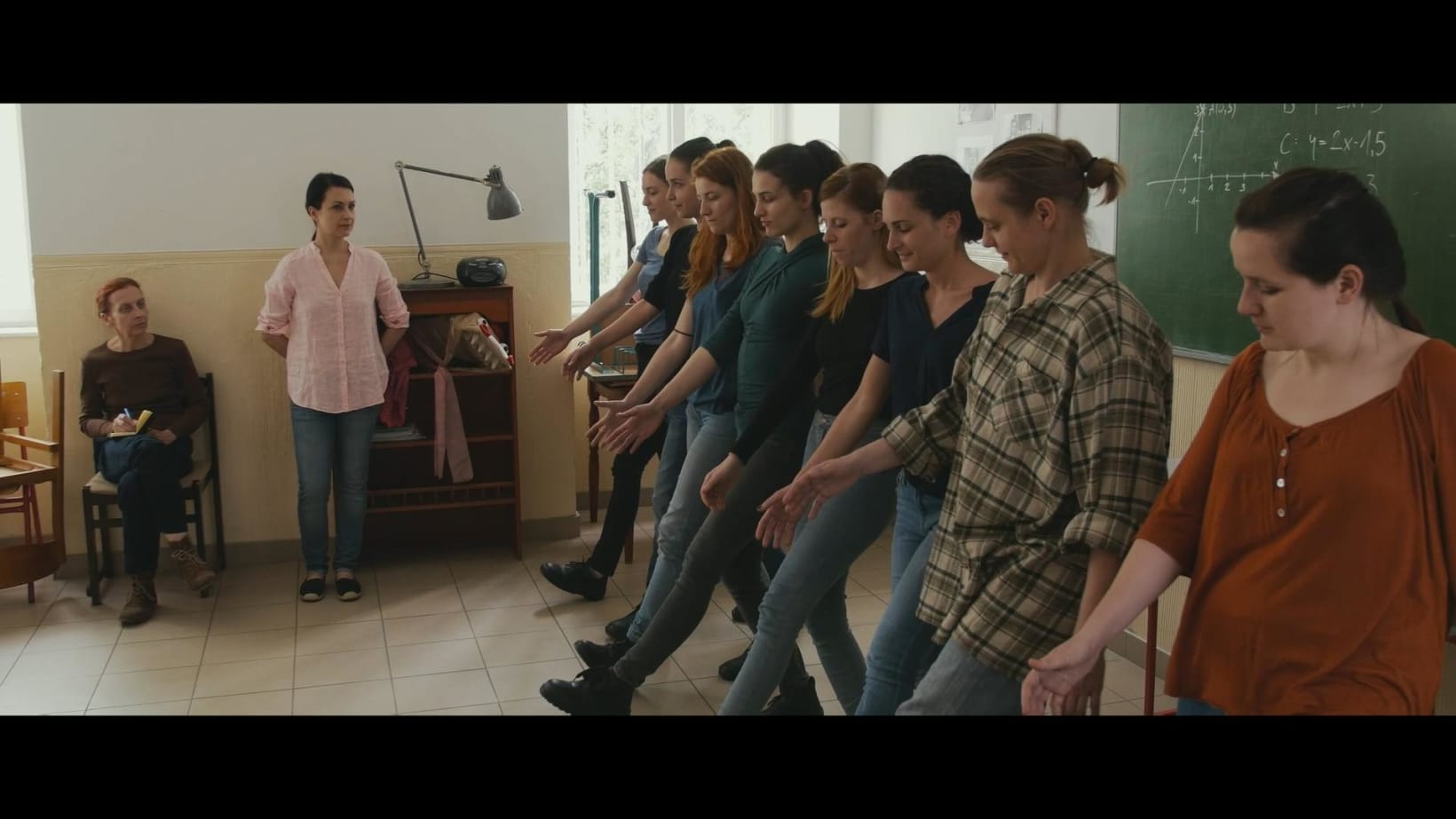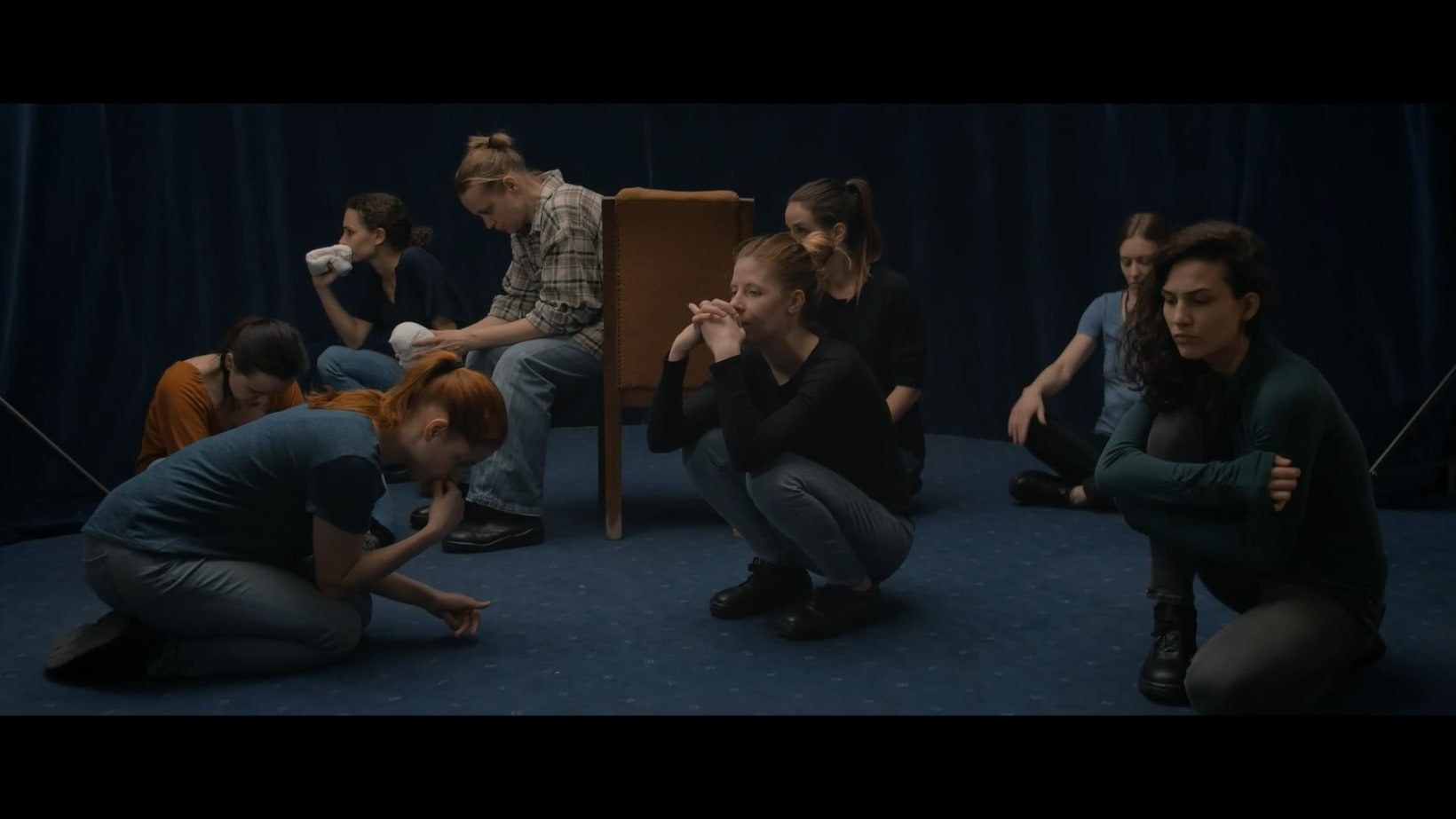
Doll: Interview with András Schmidt
András Schmidt's experience documenting a theatre group working in a Hungarian prison gave him the idea for his film Doll, presented exclusively as part of our Home Entertainment Edition.
I think this is your first film. Can you tell us how you got into filmmaking, and how this project started?
This is the first auteur/art short film I have directed. Back in high school I already knew I wanted to be a director, but I also was aware that I needed to gather more experiences before starting to create my own movies so I did not graduate at the end of my university studies but went into working instead. By the time I started to work on this movie I had been working for sixteen years as an applied artist in different fields of motion picture, animation and television. In fact, it was my job which led me to the topic of Doll: a civil organisation had asked me to document the rehearsals and performances of a theatre group working in a Hungarian prison. The idea of shooting my own movie upon this subject started to develop during this period. Ultimately this became the film for my university degree.
What are the elements of documentary in this fiction?
There is not a single documentary frame in this movie, it is entirely fictional. All of the protagonists are professional or amateur actors and all scenes have been previously designed. I guess you thought the rehearsal scenes were extracts from a documentary, but they are not. I did not want to determine step by step all actions of ten women working together so I asked them to improvise. After discussing in depth the situation I pointed out a couple of key moments which need to happen and I explained to them where they should get by the end of the scene. Sometimes I did not tell everyone exactly what would happen. Then I let them work freely. That is why these parts are so natural. For instance when we were shooting the scene with the almost-fight the actress who gets hit with a towel only knew that the girl standing in front of her would provoke a conflict but she had no notion of how this would happen. I asked the other one to make a fight happen as fast as she could, however she wanted to. Well, she succeeded.
The protagonists have a real on-screen presence, and the rehearsal scenes are fascinating. How did you find the cast, and how did you work with them?
I was lucky. We found the actresses to play the roles of the detainees among our friends, so we did not have to make a casting. Orsolya was the only one we had to search for a long time. For her role we discovered the right actress in the Budapest Puppet Theatre, someone who actually works with puppets. She makes them come to life wonderfully. Working together was a rather interesting experience. When we were at the preparation phase I assumed there would be a lot of fooling around which would make the shooting go slow. I feared a little bit of working on these scenes, as it is not the easiest task to lead ten actresses as a debutant director, but during the breaks I realised they were so taken in by the weight of their roles that they ate or worked on their makeup in quite a disciplined silence. Just as if they actually were in prison. Of course, this was because they all took the project very seriously and I am grateful for that.
We don't know anything about the characters' personal stories...
I did not want to highlight destinies, therefore there is no main protagonist in the classical sense. The women form a theatre group together. The prisoners, the parole officer, Orsolya, they are all a unit. We do not know anything of any of them indeed, and this was my goal. I wished to depict confinement through a situation which is not really known to everyday people.
Why did you choose not to show the final performance at the end?
The confinement I mentioned before would have dissolved if we had showed the actual performance. For as long as the curtains on the stage remain closed, these mothers are locked in their current lives, far from their families. The moment the curtains open changes this situation and for me that initiates another story. I did not want that to happen.
The film requires a careful attention from the viewer, the same careful attention the characters need in order to work together. Spectators and characters are put in the same state of quiet tension and concentration...
The concept of time means a completely different thing in a prison, the prisoners presumably perceive time going by in a different way than the people who live outside. It was my actual intent to make the spectator feel a bit uncomfortable during the slow scenes or at least start thinking about the whole question of time perception. This is a life form full of tensions and conflicts. These women stick together or turn against each other for utterly different reasons as they would in their normal life. In such a theatre group they find a common goal in which they depend upon each other independently of their former relationships, but they cannot bring into the group work their conflicts because they may be banished from rehearsals. The whole rehearsal period is a constant balancing between working together and the imminent fight.
Are there any films that influenced you?
I have seen quite a lot of movies; I could not even say which influenced me and how. I could mention one but only because this is the one I have seen the most times. I have seen it countless times since it premiered and each time it amazes me: Before the Rain, by Milcho Manchevski (1994).



